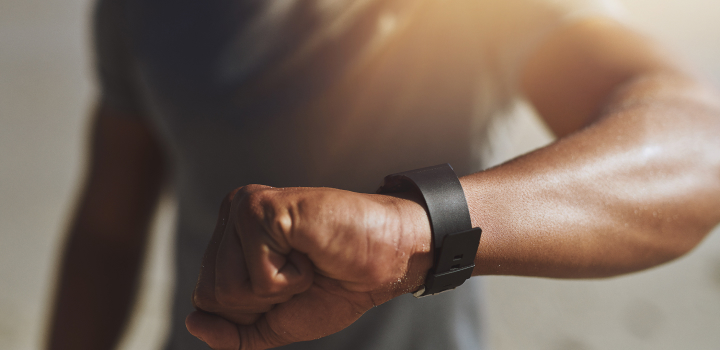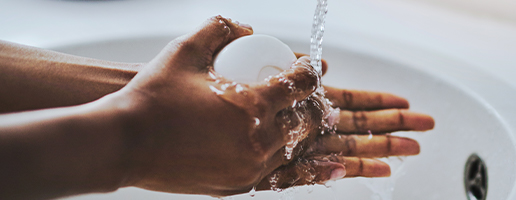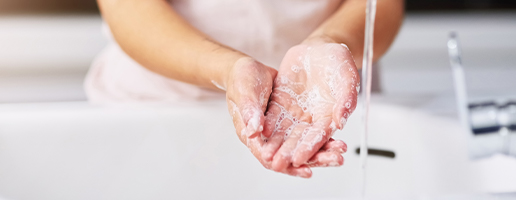Staying active at home: a guide for older adults

Sufficient physical activity is more important now than ever. Exercise is known to be a powerful way to prevent and manage chronic diseases and boosts the immune system, which can strengthen the body and protect against infections.
Dr Ryan Fuller’s podcast
Key advice to keep our elderly loved ones mentally and physically healthy during COVID-19
Important safety information: During the COVID-19 pandemic, it is very important that you remain safe and avoid any risks while staying active at home. Do not exercise if you have a cough, fever or difficulty breathing, and consult with your doctor telephonically before starting a new exercise program.
Physical activity: what is it and how much is recommended?
When people think about exercise, they tend to forget that all forms of physical activity count. According to the World Health Organization (WHO), “Physical activity includes all forms of active recreation, sports participation, cycling and walking, as well as activities you do at work and around the home and garden. It doesn’t just have to be exercise or sport – play, dance, gardening, and even house cleaning and carrying heavy shopping is all part of being physically active.”
Guidelines from the WHO, Centers for Disease Control (CDC), the American Heart Association (AHA) and American College of Sports Medicine (ACSM) and other expert bodies recommend the following physical activity for older adults:
- At least 150 minutes per week of moderate intensity aerobic activity, or activity that gets your heart beating faster. You can split the 150 minutes up however it suits you, for example 30 minutes per day for 5 days a week, or 50 minutes per day for 3 days of the week.
- Three or more days per week of balance exercises, or exercises that enhance balance and stability, helping to prevent falls. Examples include standing on one foot and side to side walking along a wall.
- Two or more days per week of resistance training, or exercise that demands that muscles generate a force to move or resist a given weight. You can create resistance using your own body weight or with elastic bands or weights.
- Two or more days per week of flexibility exercises, in sessions of at least 10 minutes, which improve your ability to move a joint through a full range of motion. The AHA advises that you stretch slowly and smoothly as far as is comfortable and avoid stretching into pain.
The importance of physical activity: in general and during the COVID-19 pandemic
Did you know that only around 1 in 10 adults over the age of 65 years engage in aerobic and strengthening exercises that meets the guidelines?
Don’t make the mistake of not incorporating sufficient physical activity into your life. Age should not be a barrier to staying active - in fact, older adults have the most to gain.
Remember, every moment of physical activity counts, and according to the WHO, “any physical activity is better than none”.
There are many general benefits of physical activity:
- Physical inactivity is a major and controllable risk factor for most chronic conditions including high blood pressure, heart disease, diabetes, osteoporosis and several types of cancer. Exercise can help prevent you from developing these conditions and if you already have a chronic condition, exercise can slow its progression, prevent complications and improve the control of the condition.
- Sufficient physical activity improves overall strength, balance and coordination which leads to more independence and a lower risk of falls.
- Being active is a great way to combat stress, anxiety and depression and improve your overall mental wellbeing and even your cognitive performance, or how well you think.
- Getting some exercise can help you sleep better, and we know that sleep is very important for health.
- Exercise can increase your life expectancy, adding years of high-quality life to look forward to.
- Staying active can save money and reduce health care costs.
During the COVID-19 pandemic, physical activity offers additional benefits:
- Moderate physical activity boosts the immune system. According to the ACSM, although exercise cannot prevent coronavirus infection if you’ve been exposed, each bout of physical activity mobilises millions of immune cells which can “minimize the deleterious effects of the virus, ameliorate our symptoms, expedite our recovery times and lower the likelihood that we can infect others with whom we come into contact”.
- Exercise helps you maintain a sense of sanity in an uncertain time, elevating your mood and lifting your spirits.
Tips for staying active at home
Safety first
Do not exercise if you have a fever, cough or difficulty breathing. If you have any of these symptoms, alert health authorities.
Moderate exercise is safe for most older adults. Give your doctor a call if you have a chronic condition like diabetes or heart disease and your doctor has not yet given you the green light for your exercise programme, or if you want to start a new exercise programme.
If you are exercising alone at home, ensure that you know who to call if you need help or sustain an injury. Check the environment you exercise in to ensure that it is safe and that there is a sturdy chair or counter nearby which you can use if you lose balance. For home workouts, wear appropriate clothes and footwear for exercising.
Keep it moderate
Don’t exercise too vigorously. According the WHO, you should be able to breathe comfortably and hold a conversation while you do light- and moderate-intensity physical activity.
Avoid prolonged sitting
Sitting for too long makes you a ‘sitting duck’ for chronic disease. Even if you are spending large chunks of the day sitting and reading or watching TV, simply getting up regularly can improve your health. Aim to punctuate you sitting periods with small breaks to stand, take a walk around the house, do a household chore or even march on the spot.
Follow a routine
It is a lot easier to maintain your health and stay physically active if you design a simple routine for your day. Use a diary to plan your day to make sure that there is time devoted to being active.
Go for a stroll in your home
A simple walk around your home or even a few paces within a room or on the spot can get your blood flowing.
Yes, housework counts
Doing chores around the house is a great way to keep active.
Put on some music
Listen to your favourite songs and dance in your own living room.
Use household items as gym equipment for your workout
How about some at-home resistance exercise with weights? You don’t need actual weights; you can use bottles of water or cans as weights for your exercises.
Remember to drink water
Drink water throughout the day to prevent dehydration.
Try an online exercise video or programme
Many people in the world are living in lockdown, quarantine and self-isolation including sports and exercise professionals, who are creating home-based physical activity programmes to support the rest of us. https://exerciseright.com.au/homeworkouts/
All medical information found on this website including content, graphics and images, is for educational and informational objectives only. Discovery Health publishes this content to help to protect and empower all South Africans by promoting a better understanding of COVID-19.
Find a healthcare professional near you
Find a doctor or hospital near you online or by using the Discovery app.
Related articles

Outbreak of the 2019 novel coronavirus
The 2019 novel coronavirus (2019-nCoV) has caused an outbreak of fatal respiratory illness first detected in Wuhan, China. This is a completely new strain with no vaccines available. The best way to prevent infection is to avoid being exposed to this virus.

Understand the Novel Coronavirus (COVID-19) and prevent infection
No country is immune to the spread of the Novel Coronavirus - officially named COVID-19 by the World Health Organization (WHO). The outbreak has reached pandemic proportions and been declared a global public health emergency.

Novel Coronavirus - wash your hands of the threat
As toddlers, we learnt to wash our hands. But, did we ever master the skill to the extent that is needed to wash pathogens off our hands, and save lives? Multiple studies show people don't wash their hands at the right times, in the right way or for the right amount of time. We contaminate the things and people we touch with the germs we carry on our hands.